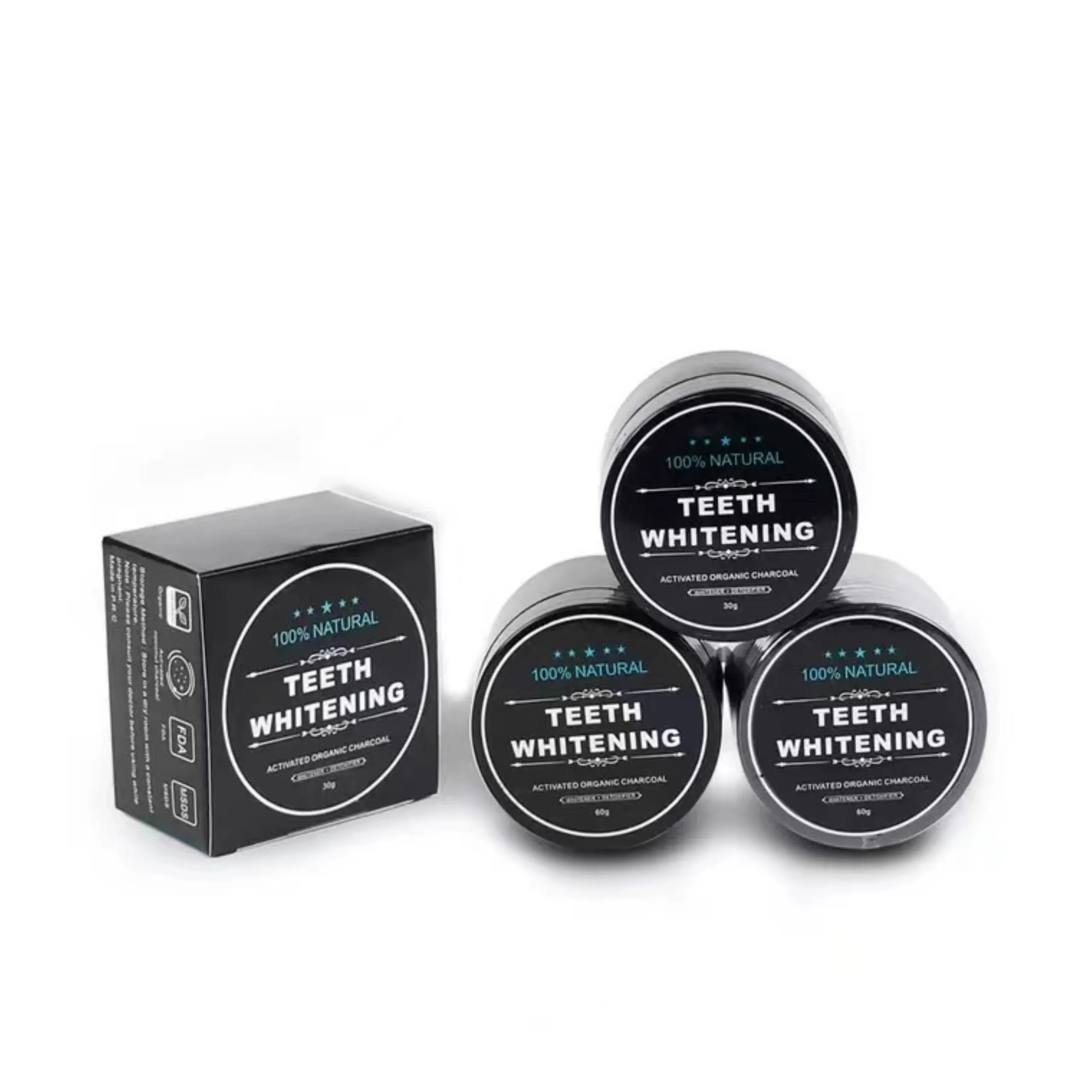The Power of Charcoal Powder
In the quest for a brighter, more confident smile, many are turning to natural remedies. Among these, charcoal powder has gained significant popularity as a teeth whitening agent. This article will delve into the top 7 secrets of charcoal powder, providing a comprehensive guide on how to use it effectively and safely for achieving a dazzling, natural white smile. From understanding its properties to addressing potential risks, we’ll uncover everything you need to know about harnessing the power of charcoal powder. Get ready to transform your oral hygiene routine and embrace the potential of this remarkable substance.
What is Charcoal Powder?
Charcoal powder, in the context of teeth whitening, typically refers to activated charcoal, a fine, black powder derived from various sources like coconut shells, wood, or other organic materials. The activation process involves heating the material in the presence of a gas, which creates tiny pores that increase its surface area. This increased surface area is the key to its absorbent properties, making it effective at attracting and binding to substances, including the stains on your teeth. This is what makes it a popular choice for those seeking a natural teeth whitening solution. The process is chemical free and is a great alternative for those wanting to avoid harsh chemicals.
How Does Charcoal Powder Whiten Teeth?
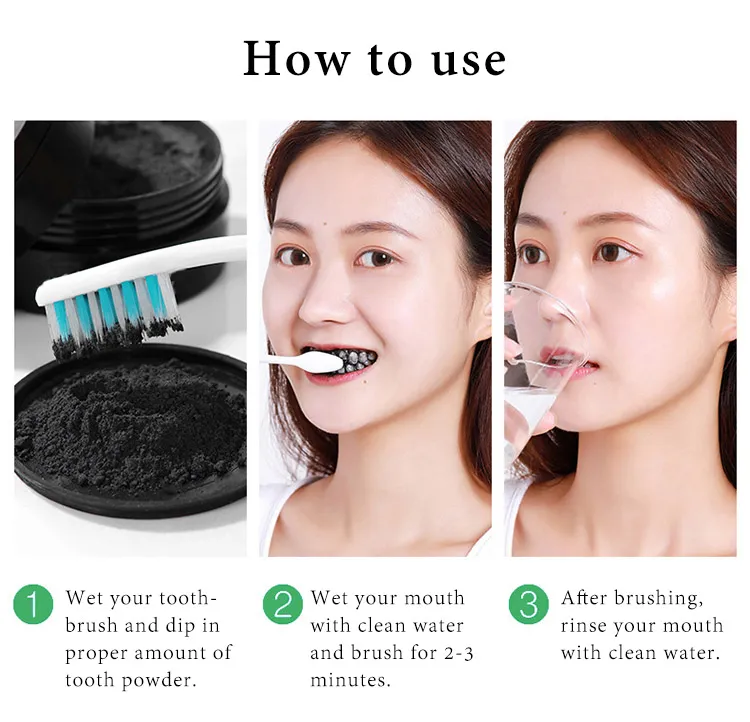
The teeth whitening action of charcoal powder is primarily due to its abrasive and absorbent properties. As you brush with charcoal powder, the tiny particles gently scrub away surface stains caused by coffee, tea, wine, and other staining agents. Moreover, the porous structure of activated charcoal helps to absorb tannins and other compounds that contribute to discoloration. This combination of gentle abrasion and absorption helps to reveal the natural whiteness of your teeth, leading to a brighter smile. The key to remember is that charcoal powder is primarily effective on surface stains and will not change the intrinsic color of your teeth.
Secret 1 Charcoal Powder’s Absorption Magic
The magic of charcoal powder lies in its remarkable ability to absorb impurities. This absorbent property, a result of the activation process, is crucial for its teeth whitening action. The porous structure of activated charcoal acts like a magnet, attracting and binding to stains, bacteria, and other particles that cause discoloration and bad breath. This absorption process is a gentle way to remove surface stains without harsh chemicals. The activated charcoal doesn’t penetrate the enamel; instead, it works on the surface, making it a safer, natural alternative to traditional teeth whitening products. This unique ability makes charcoal powder a powerful tool for enhancing your smile.
How Charcoal Powder Removes Stains
Charcoal powder effectively removes stains by gently scrubbing away the discoloration caused by various substances. Coffee, tea, wine, and tobacco are notorious for staining teeth, and charcoal powder can help to lift these stains. As you brush, the fine particles of charcoal powder gently abrade the surface of your teeth, dislodging the staining particles. Simultaneously, the absorbent properties of the charcoal bind to the stains, helping to remove them from your teeth. This process is particularly effective on surface stains, revealing the natural whiteness of your teeth. Regular use can help to prevent the build-up of new stains.
Secret 2 Choose the Right Charcoal Powder
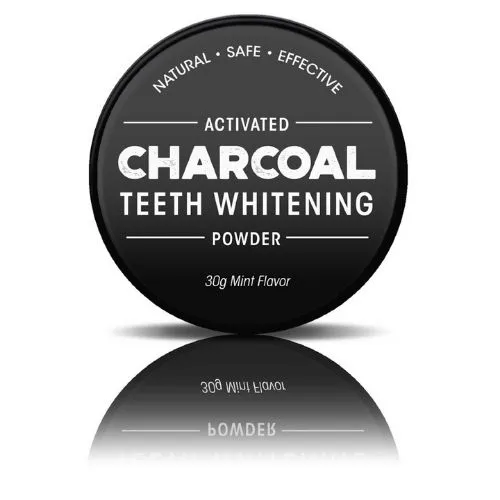
Not all charcoal powders are created equal. The source material, the activation process, and the particle size can all affect its effectiveness and safety. Choosing a high-quality charcoal powder is essential for achieving the best results and minimizing potential risks. Look for products that are made from natural sources, such as coconut shells, and that have undergone proper activation. Furthermore, consider the particle size; finer particles are generally less abrasive and gentler on your enamel. Reading reviews and doing your research can help ensure you choose a safe and effective product.
Types of Charcoal Powder
The most common types of charcoal powder for teeth whitening are derived from coconut shells and wood. Coconut shell charcoal is often preferred because it is considered to be less abrasive and has a finer particle size. Wood-based charcoal can also be effective, but it may be slightly coarser. Regardless of the source, ensure the product is food-grade and has undergone the activation process to maximize its absorbent properties. Always check the product label for details about the source and processing to make an informed decision. Different types of charcoal may have varying levels of effectiveness, so choosing the right one is important for your oral health.
Quality Matters Charcoal Powder
The quality of charcoal powder directly impacts its effectiveness and safety. High-quality charcoal powder should be free from additives, artificial flavors, and harsh chemicals. It should be properly activated to maximize its absorbent properties and have a consistent particle size to minimize abrasion. Always purchase charcoal powder from a reputable brand that provides information about its sourcing and manufacturing processes. This ensures that you are using a product that is safe and effective for teeth whitening. Poor-quality products may contain impurities or be overly abrasive, which can damage your enamel.
Secret 3 Correct Charcoal Powder Application
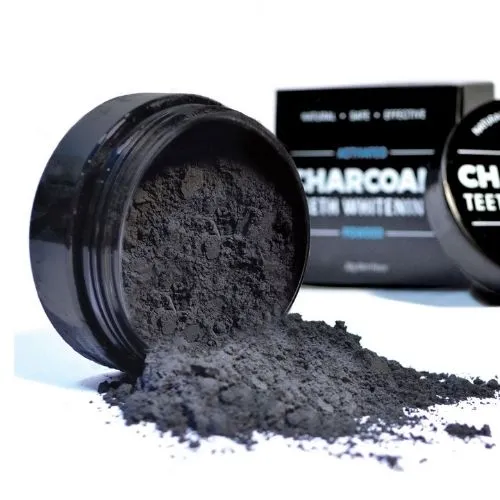
Applying charcoal powder correctly is vital for achieving the best results and avoiding potential harm to your teeth. The method of application can affect the effectiveness of the whitening process. The best approach combines charcoal powder with gentle brushing techniques. Always use a soft-bristled toothbrush to prevent damage to your enamel. Excessive force while brushing can lead to enamel erosion and increased sensitivity. Correct application will make sure you’re getting the best results from the product.
How to Apply Charcoal Powder
To apply charcoal powder, start by moistening your toothbrush. Dip the bristles into the charcoal powder, ensuring they are coated. Gently brush your teeth for 2-3 minutes using small, circular motions. Focus on each tooth to ensure thorough coverage. After brushing, rinse your mouth thoroughly with water. You may want to rinse several times to remove all traces of the black powder. Some users find it helpful to brush with regular toothpaste afterward to ensure complete removal and freshen breath. Be patient and consistent with this routine to achieve optimal results.
Charcoal Powder Application Tips
To maximize the benefits of charcoal powder, use a soft-bristled toothbrush to prevent damage to the enamel. Brush gently, avoiding excessive pressure, and focus on each tooth to ensure thorough coverage. Consider using charcoal powder once or twice a day, depending on your needs and the sensitivity of your teeth. Be sure to rinse thoroughly after brushing to remove all traces of the powder. Some users prefer to follow up with regular toothpaste to refresh their mouth and enhance cleaning. Avoid swallowing the powder and, if irritation occurs, discontinue use and consult with a dentist. Use the product as directed and within recommended guidelines.
Secret 4 Patience and Consistency is Key
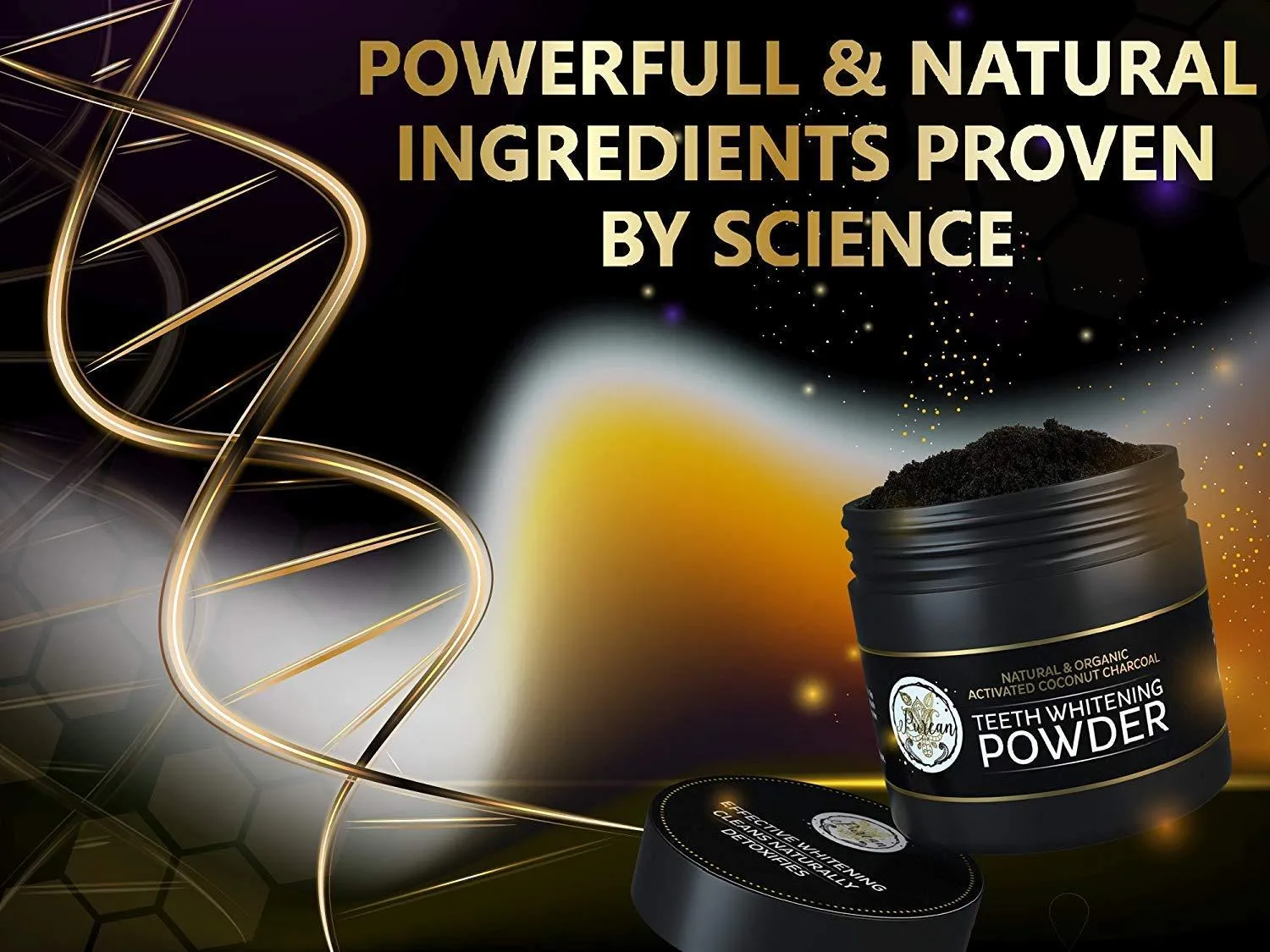
Teeth whitening with charcoal powder is a gradual process. It requires patience and consistency to achieve noticeable results. Unlike some professional treatments, charcoal powder typically produces subtle changes over time. Regular use, combined with good oral hygiene practices, is key to seeing improvements in the brightness of your teeth. It is important to manage your expectations and understand that results vary depending on factors such as the severity of stains and the individual’s tooth enamel. Maintaining this practice will gradually lead to your desired results.
Expected Whitening Timeline
The whitening timeline with charcoal powder varies depending on the individual and their habits. Some users may notice a slight improvement within a few days, while others may require several weeks of consistent use to see significant results. Generally, visible whitening effects can be expected within 2-6 weeks of regular use. Factors like the type and severity of stains and your oral hygiene routine also play a role. Be patient, consistent, and monitor your progress. If you do not see any improvement after several weeks, consider consulting with a dentist to explore alternative whitening methods.
Tips for Maintaining Results
Once you’ve achieved your desired level of whitening, there are steps you can take to maintain your bright smile. Continue to use charcoal powder a few times a week, or as needed, to help prevent the build-up of new stains. Practice good oral hygiene by brushing twice a day with fluoride toothpaste and flossing daily. Avoid or limit the consumption of stain-causing foods and drinks, such as coffee, tea, and red wine. Regular dental check-ups and cleanings can also help maintain your results. Consider using a whitening toothpaste. These practices will help you preserve your brilliant smile.
Secret 5 Combine Charcoal Powder with Other Ingredients
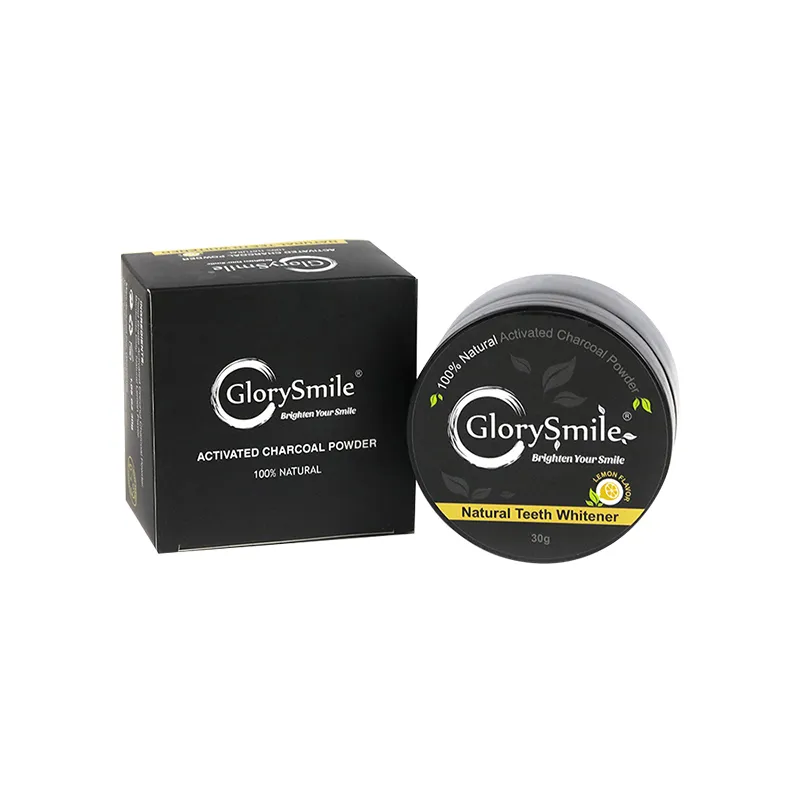
While charcoal powder can be effective on its own, combining it with other ingredients can enhance its benefits. Certain natural ingredients complement charcoal powder and provide additional oral health advantages. Coconut oil and baking soda are popular choices for their properties. However, use these combinations judiciously, as excessive use of some ingredients may lead to potential risks. Always research the ingredients before use. Experimenting with these combinations will help find the best method of use for you and your teeth.
Charcoal Powder with Coconut Oil
Combining charcoal powder with coconut oil is a popular method. Coconut oil has antibacterial and anti-inflammatory properties that can promote oral health. To use, mix a small amount of charcoal powder with a teaspoon of coconut oil to create a paste. Brush your teeth with the paste for 2-3 minutes, using gentle circular motions. The coconut oil can help bind to and remove stains. Some find this combination more gentle than using charcoal powder alone. However, always consult with a dentist before making any changes to your oral hygiene routine.
Charcoal Powder with Baking Soda
Baking soda is a mild abrasive that can boost the whitening power of charcoal powder. Mix a small amount of charcoal powder with a pinch of baking soda and a little water to form a paste. Brush your teeth with this mixture, but be cautious, as baking soda can be abrasive. It is important to use this combination sparingly and with gentle pressure, as excessive use can wear down enamel. Always rinse your mouth thoroughly after brushing. Always consult a dentist before incorporating baking soda into your routine.
Secret 6 Understand Potential Risks
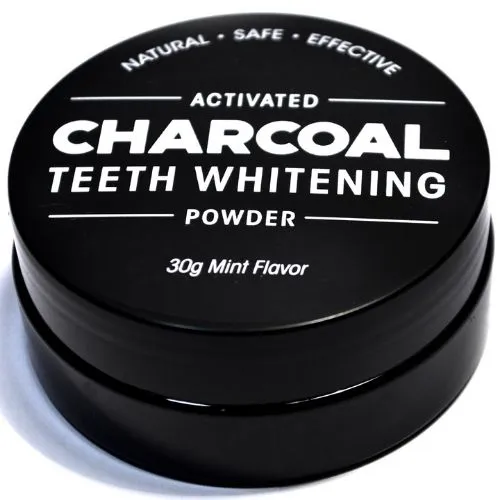
While charcoal powder is generally considered safe, there are potential risks to be aware of. Overuse or improper application can lead to enamel abrasion, which can increase tooth sensitivity and make your teeth more susceptible to decay. It’s essential to use a soft-bristled toothbrush, brush gently, and avoid excessive pressure. Furthermore, not all charcoal powders are created equal; some may contain impurities or be overly abrasive. Doing your research can help you avoid those risks. In the event that any unusual symptoms occur, consult with a dental professional.
Charcoal Powder and Enamel Sensitivity
One of the primary concerns with charcoal powder is its potential to cause enamel sensitivity. Enamel is the hard, protective outer layer of your teeth, and excessive abrasion can wear it down. When the enamel thins, the underlying dentin becomes exposed, which contains tiny tubules that lead to the nerve. This can result in increased sensitivity to hot and cold temperatures. If you experience increased sensitivity, reduce the frequency of use or discontinue the use and consult your dentist. Using a soft-bristled toothbrush and brushing gently can help minimize the risk of enamel abrasion.
When to Consult a Dentist
It’s important to consult with your dentist if you experience any adverse effects while using charcoal powder. If you notice increased tooth sensitivity, gum irritation, or any other unusual symptoms, discontinue use and seek professional advice. Your dentist can assess your oral health and determine if charcoal powder is suitable for you. They can also offer alternative teeth whitening options or address any underlying issues that may be affecting your oral health. Regular dental check-ups are essential for maintaining a healthy smile and detecting any problems early on.
Secret 7 Maintaining a Bright Smile
Achieving and maintaining a bright smile requires a holistic approach that goes beyond just using charcoal powder. It is crucial to consider various factors to ensure long-term oral health. Regular oral hygiene practices, a balanced diet, and professional dental care are all essential for a healthy, radiant smile. These components work together to keep your teeth bright and healthy. Make oral hygiene a part of your routine.
Dietary Considerations
Your diet plays a significant role in the appearance of your teeth. Certain foods and drinks can stain your teeth, while others promote oral health. To maintain a bright smile, limit your consumption of staining agents like coffee, tea, red wine, and dark-colored sodas. Consume plenty of water to stay hydrated and rinse away food particles. Include crunchy fruits and vegetables in your diet, as they can help to naturally clean your teeth. Following a balanced diet will assist in maintaining your teeth’s appearance.
Oral Hygiene Practices for Long-Term Whitening
Maintaining a bright smile involves consistent oral hygiene practices. Brush your teeth at least twice a day with fluoride toothpaste and floss daily to remove plaque and food particles. Consider using a mouthwash to freshen breath and provide additional protection against cavities. Schedule regular dental check-ups and cleanings to remove tartar and detect any potential problems early on. Consider using charcoal powder once or twice a week in order to help with teeth whitening. These are all vital steps for maintaining a bright and healthy smile.
